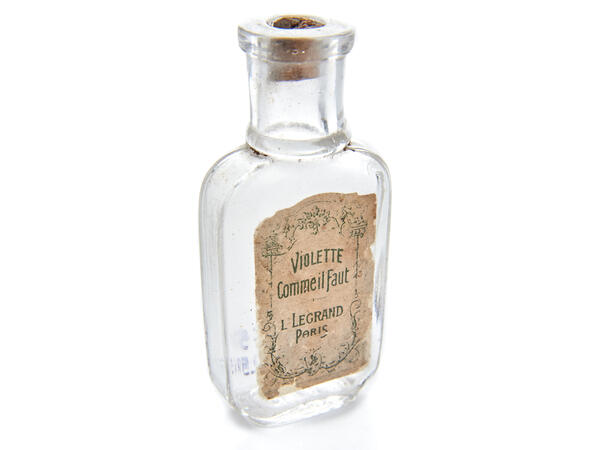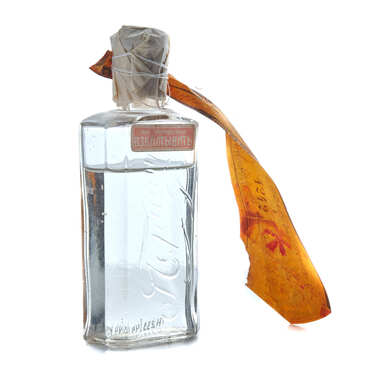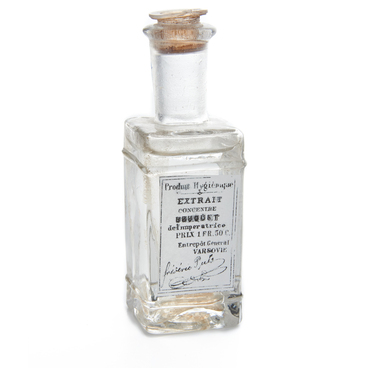In the second half of the 19th century, hygiene products and cosmetics: soap, tooth powder, face powder, bleaching creams, hair growth products, perfumes, and aromatic waters — could be bought at a pharmacy. The ‘Old Tula pharmacy’ has a bottle of Violette Comme Il Faut perfume by the manufacturer L. Legrand, Paris. Judging by the name, it was a violet-scented perfume — sweet, powdery, boudoir, extremely popular at the end of the 19th century.
The violet symbolized innocence and purity, tenderness and modesty. No fashionable parlor was complete without pots of violets. In the stores, one could buy chocolates with violet filling and violet liqueur.
Following the fashion trends of the 19th century, Oriza L. Legrand created violet fragrances. For example, for the imperial court of Russia, it produced the fragrances ‘Violets for the Tsar’ (Aux Violettes du Czar), ‘Royal violets for a scarf’ (Violettes du Czar pour le Mouchoir), ‘Double violets for the Tsar’ (Doubles Violettes du Czar).
Oriza L. Legrand was a famous European perfume company. In the 19th century, it was a supplier to the royal courts of France, England, Italy, and Russia.
The Maison Oriza Company was founded by the famous royal perfumer Jean Farjon in 1720. The name Oriza plays around with 'gold' (or) and 'rice' (riz) — rice powder for wigs and make-up. In 1811, Louis Legrand bought it from the heirs of Farjon along with the archives of perfumes and cosmetics and opened his own store on the street Saint-Honore. Half a century later, in 1860, he sold the brand to his younger and more energetic partner Antonin Reynaud. In 1879, Raynaud created the world’s first perfume line Parfumerie Oriza. Its fragrances were accompanied by cosmetics that had a common name with perfumes and had a similar bottle design. Raynaud was the first to add his perfume to soaps and other cosmetics. This is how he revolutionised cosmetic marketing, ahead of other well-known companies.
In the spring of 1890, when perfume markets were operating in almost every arrondissement in Paris, where one could buy cheap perfumes, the house of Oriza L. Legrand opened a luxury store on the Place Madeleine in the city center, emphasizing that their products were only for the elite. The company participated in international exhibitions, receiving numerous awards — from the bronze medal at the universal exhibition in Paris in 1867 to the Grand Prix there in 1900.



